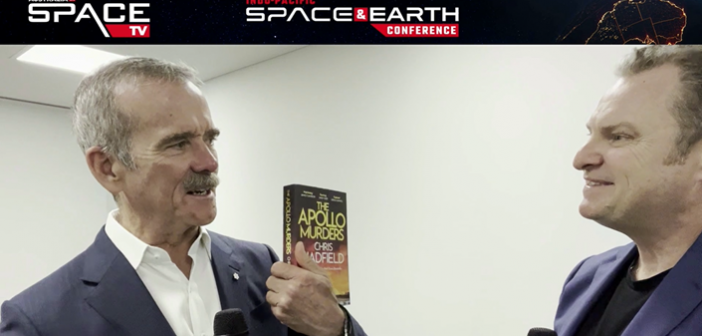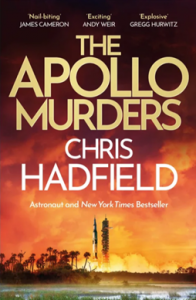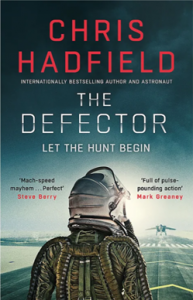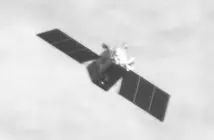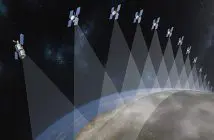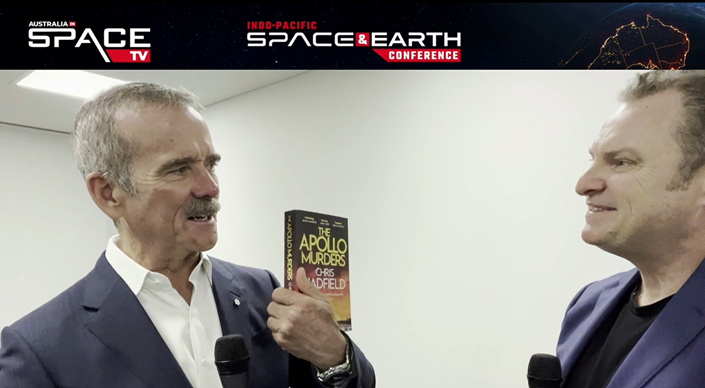
Interviewer (Chris Cubbage): Colonel Chris Hadfield, thanks for joining us on Australia in Space TV.
Chris Hadfield
There is almost no place I’d rather be, apart from maybe in orbit. Thanks for the invitation.
Interviewer: Great to be here in Melbourne at CyberCon. And you’ve got the place buzzing following your presentation this morning. We last spoke in 2019, on the back of a presentation in Sydney. But since then, you’ve had a couple of books published as well, the Apollo Murders.
Chris Hadfield
Yeah, the fact that the Apollo Murders is my first thriller fiction that I’ve ever written. And it’s a big task to try and to transition from writing nonfiction to fiction. And you learn a lot when you try something new. It also pushes the edges of what you know. But to me, it’s the same as when I learned to ride a bike or learned to fly an airplane or learned to fly a rocket ship. You give yourself a goal. And then you get some experts around you, to teach you. And then you start figuring out for yourself and then you practice and get better and better at it.
And the Apollo Murders is now being made into a television series. Actually, we just signed on with Sylvester Stallone, he loves the book. And I’ve got to know Sly a little bit. And so, we’re working with his production, he calls it Balboa Productions, from Rocky Balboa.
And then, I just released The Defector. And in fact, as of today, it is the best selling book in Canada. So huge honour and a delight for me. And it’s a real aerospace thriller. And it’s the type of book I always love. It’s very detailed, very engrossing. Something that when you read it, you don’t think about anything else, and really learn a lot along the way.
So, I’m very proud of both books.
Interviewer: I noticed they’re both set in 1973. In that timeframe. What’s the affinity to 1973?
Chris Hadfield
1973 is a really interesting time. It’s the end of the Apollo era. So that part of spaceflight was just ending. It’s during the end of the Nixon administration, with his Watergate scandal. So, there was a lot of geopolitics going on. It was at the height of the Cold War. It was the rise of women’s rights in the United States and, a lot of civil rights. So, a lot of that is going on in the background, and the early days of the Space Shuttle. And so, between all of those geopolitical factors, and also the time of the Yom Kippur War, which, of course is being reflected by current and wicked events in Israel now. So, it was a very tumultuous time. And when there’s tumult, there are a lot of stories. And I’m writing the third book of the series now.
Interviewer: How do you approach your writing? And what is your motivation? What do you get out of writing given your mission focused training?
Chris Hadfield
I love learning new things. And I like to create new things. I’m a musician, and I write music. And to be able to challenge myself, to better understand the history, to use all of the stuff I’ve learned in aviation as a combat fighter, a test pilot, and, and now astronaut. To use all my background, to then try and put together a story of just what might have been. I learned a huge amount.
But then it’s also another way of sharing the uniqueness of the Spaceflight experience, you know, you could just write nonfiction, which is great. And I’ve done that. But when you write fiction, you can really dig into the details of how other people would react and push the edges of reality. And so, I think it gives me more room to tell the story in a different way.
Interviewer: I think you’re absolutely right, your body of knowledge is so deep and broad. I don’t think you can do the full body of knowledge justice in your presentations, but you still blow the audiences away.
Chris Hadfield
Well, yeah, I just did a one man show across the UK and Ireland. And we sold out virtually everywhere and had great reviews. Yeah, I think in life, and what’s important to you, what have you learned? What are you learning? And how are you sharing it with other people? I mean, what else is important?
Interviewer: You have just done that with a couple hundred people doing book signing, so I appreciate your time. And wonderful to see you back here in Australia. Wonderful to have a second opportunity to speak to you.
Chris Hadfield
Nice to speak with you also. There is so many amazing things happening in space right now from the space station to landing on the moon to all of the discoveries that are being made.
Interviewer: I was going to ask you about the Artemis mission. And what you’re seeing at the moment?
Chris Hadfield
Well between Artemis and the people who are going to the moon in little over a year from now and the Indian Space Agency landing on the moon. The Chinese Space Agency saying they will have people on the moon by 2030 at the latest. It’s a pivotal moment in human history.
We have a new continent, bigger than Africa, that we’ve started to explore and now we’re starting to settle. So, it’s that repetition of history where we now move into a whole new area.
How we choose to do it is going to determine the pattern of how we settle planets from now on. So it’s a really pivotal and watershed moment. And so, I’m very heavily involved in policy.
I’m working with King Charles on a program called the Astra Carta. I’m the chair of the board of the Open Lunar Foundation. So, there’s a lot of different areas to stay busy. And, write books occasionally.
Interviewer: Colonel Chris Hadfield, I could literally talk to you all day, thank you very much for joining us on Australia in Space TV.
Chris Hadfield
My pleasure and enjoy the books. But even more importantly, keep on dreaming about what’s possible.
Interviewer: We will have links in the show notes for sure. Thank you very much.
Chris Hadfield
You’re welcome.
*Our apologies. Due to a technical error on the audio recording the video interview was not of a sufficient quality to release.
Interview conducted on 19 October, 2023.

